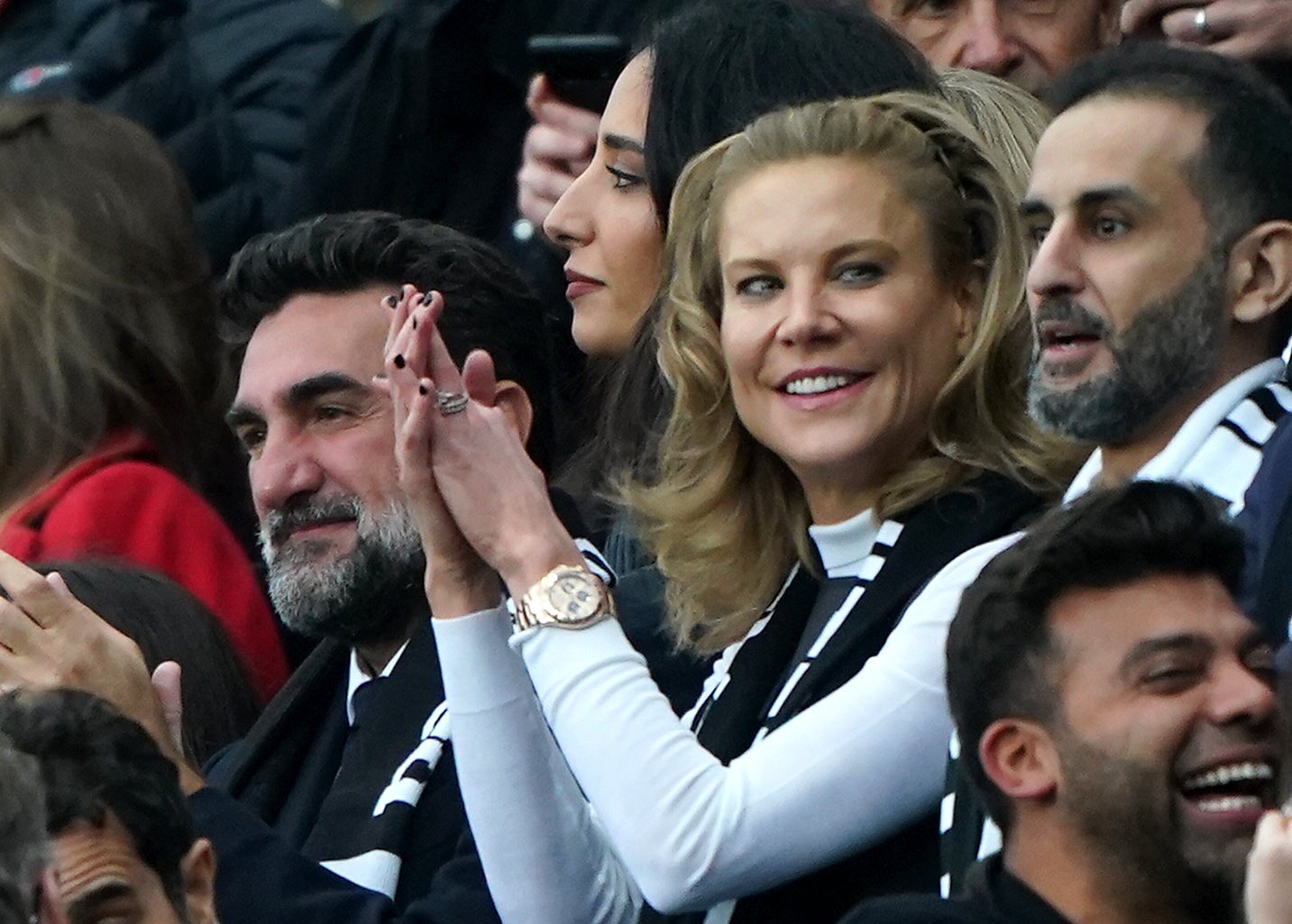When Amanda Staveley tried to buy Liverpool
For almost a decade it was the Newcastle part-owner’s ambition to buy Liverpool instead. Both sets of fans are grateful it didn’t happen, writes Tony Evans


Your support helps us to tell the story
From reproductive rights to climate change to Big Tech, The Independent is on the ground when the story is developing. Whether it's investigating the financials of Elon Musk's pro-Trump PAC or producing our latest documentary, 'The A Word', which shines a light on the American women fighting for reproductive rights, we know how important it is to parse out the facts from the messaging.
At such a critical moment in US history, we need reporters on the ground. Your donation allows us to keep sending journalists to speak to both sides of the story.
The Independent is trusted by Americans across the entire political spectrum. And unlike many other quality news outlets, we choose not to lock Americans out of our reporting and analysis with paywalls. We believe quality journalism should be available to everyone, paid for by those who can afford it.
Your support makes all the difference.Amanda Staveley will take her place in the Anfield directors’ box on Thursday night when Newcastle United visit in the Premier League. She has been there before. For almost a decade her ambition was to buy Liverpool. Both sets of fans are grateful that did not happen.
The first time Staveley’s name became known on Merseyside was when she pitched up as a representative of Dubai in 2008. The Yorkshire-born businesswoman had been involved in Abu Dhabi’s buyout of Manchester City earlier in the year and, armed with more Emirati money, aimed to displace the hated regime of Tom Hicks and George Gillett.
A picture of Staveley in the Liverpool directors’ box used to be on display in her home. The high-profile pursuit of the club put her in the limelight but achieved little else. Anfield’s warring American owners were too busy fighting among themselves to agree a number for a sale. Staveley tried sweet-talking Hicks, Gillett and the Spirit of Shankly supporters’ union with varying degrees of success. A feeling grew that Staveley was keener to do the deal than her Arab backers.
The bid might have failed but it gave the 48-year-old a taste for greater involvement in football. By the time she turned her attention to Liverpool again eight years later, Staveley had developed the template that would be used at Newcastle. She no longer wanted to be a mere agent in a takeover. She wanted a piece of the club for her own.
In 2015, John W Henry, Liverpool’s principal owner, told confidantes that he was willing to listen to offers. He made it clear that Fenway Sports Group (FSG) were in no hurry to sell and were keen to protect their legacy by finding the right buyer but Anfield was on the trading block. In public FSG denied this.
This time Staveley enlisted Chinese help. The initial approach caught Henry’s attention. China Everbright, the massive financial services company, were named as senior bidder alongside Staveley’s PCP Capital Partners company. This was serious enough for FSG to put the potential buyers in touch with Allen & Company, their New York-based merchant bank. But media leaks soured Henry, as did the lack of solid information about the money. As the weeks went by, CYTS, a conglomerate owned by the Communist Youth League of China, became involved and even invited Henry to Beijing to discuss the matter. One thing never reached FSG or their bankers, though: proof of funding.
There was a window to buy Liverpool in the dispiriting, waning days of Brendan Rodgers’s tenure and the early part of Jurgen Klopp’s spell in 2015. The figures seem laughable just five years on: one proposal was £850 million up front with £150 million deferred so that the headline figure could be £1 billion. In March, RedBird Capital Partners paid £533 million for about 10 per cent of FSG. Although that includes the other arms of Fenway’s business such as the baseball franchise Boston Red Sox, the present price of Liverpool is significantly higher than the numbers being bandied around in 2016.
Staveley moved on to Newcastle to the joy of supporters in the north east. It worked out well for everyone because Geordies were finally rid of Mike Ashley, who was reviled at St James’ Park even more than Hicks and Gillett were at Anfield.
Did the Kop have a lucky escape? Definitely. Although FSG spent the first five years of their ownership grasping for a coherent direction, engaging Klopp marked a significant turning point. Much like the fans, the Boston-based owners were energised by the German and the stability and support the manager received from the boardroom meant everyone was pulling in the same direction – which was not always the case in the pre-Klopp FSG era.
Newcastle’s problems since the takeover show the difficulties of the sort of split ownership proposed during the Chinese interest in Anfield. Staveley and the Reuben brothers’ RB Sports and Media own 10 per cent each, with Saudi Arabia’s Public Investment Fund (PIF) in control of the rest of the club. Many of Newcastle’s problems have been caused by the timing of the takeover – midseason when there were few managers available and between transfer windows – but it has proven difficult to get a smooth-running system in place quickly. The behind-the-scenes dissonance that characterised the Ashley years cannot be swept away fast enough.

It is a matter of time before Newcastle build an efficient machine but – at least in the short term – the clock is not the team’s friend. A fear of relegation lurks around Tyneside. A bad defeat against Liverpool would usher in a grim Christmas, with home games against Manchester City and Manchester United up next. By the time Eddie Howe’s team come back to Merseyside to play Everton in their last game of 2021, safety might be a lot further away.
It could be an uncomfortable night at Anfield for Staveley. Henry and FSG were among the most vehement opponents of the Saudis buying into the Premier League. Last week's email from the Newcastle director to the other top-flight clubs that suggested the proposed new sponsorship rules are anti-competitive and carrying the threat of legal action will have caused fury in Boston. Staveley will get an icy cool reception. If Howe’s side defend like they did in the 4-0 defeat by Leicester City on Sunday, it will be a long night.
It may flick across Staveley’s mind, “this is what you could have had, this is what you got.” There is a huge gulf between the clubs at the moment. Closing the gap should not even be a consideration for Newcastle’s new owners. Survival is the only thing on their agenda.
Join our commenting forum
Join thought-provoking conversations, follow other Independent readers and see their replies
Comments